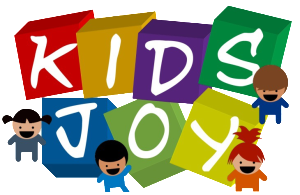Preschool is a crucial time in a child’s life when they embark on the journey of education and social development. As parents, you play a pivotal role in this journey, and one of the most effective ways to ensure your child’s success is through active and meaningful communication with their preschool teachers. In this blog, we will explore the importance of parent-teacher interaction in preschool and provide you with valuable insights on what questions to ask and how to maintain a strong connection with your child’s educators.
The Importance of Parent-Teacher Interaction
- Building a Supportive Partnership
Effective parent-teacher interaction forms the foundation of a strong partnership between home and school. When parents and teachers collaborate, they create a nurturing and supportive environment that helps children thrive. Your active involvement in your child’s education sends a powerful message that learning is a priority, fostering a sense of importance and enthusiasm in your child.
- Understanding Your Child’s Progress
Regular communication with your child’s preschool teacher allows you to gain insight into their development. Teachers can provide you with detailed feedback about your child’s academic and social progress, allowing you to understand their strengths and areas that may need improvement. By interacting with the teacher, you can gain insights into your child’s social interactions and behavior at school. This will help you reinforce positive behaviors and address any challenges effectively.
- Tailoring Support to Your Child’s Needs
Every child is unique, and their educational needs vary. Through open dialogue with the teacher, you can better understand your child’s learning style, interests, and areas where they may require additional help. This information will enable you to tailor your support and activities at home to enhance their preschool experience.
- Helping the school understand the child better
When parents actively engage with their child’s teacher, the school gains valuable insights into the child’s background, strengths, and areas where they may need support. This understanding allows teachers to provide a more tailored and effective educational experience. It also often translates into increased participation in the school and it’s activities, which helps the child feel more secure and increases the parent child bond as well.
Questions to Ask Preschool Teachers
- “What is my child’s daily routine and schedule like at school?”
Understanding your child’s daily routine can help you establish consistency and familiarity in their home life.
- “How is my child doing academically?”
Ask about your child’s progress in areas such as literacy, numeracy, and other developmental milestones to ensure they are on track.
- “What social and emotional skills is my child working on, and how can I support their development at home?”
Preschool is a time for social growth. Inquire about your child’s interactions with peers and how you can encourage positive social behavior at home.
- “Are there any challenges or concerns that you’ve noticed with my child’s development, and how can we address them together?”
Open communication about challenges is essential for timely intervention and support.
- “How can I be involved in my child’s learning and the preschool community?”
Ask about opportunities to participate in school events, volunteer, or support your child’s classroom activities.
Maintaining a Strong Connection
Regular Meetings: Schedule regular parent-teacher conferences to discuss your child’s progress, any concerns, and strategies for support.
Communication Channels: Ensure you are aware of the ways to reach your child’s teacher, such as email, phone, or a communication channel used by the school.
Attend School Events: Participate in school events and parent-teacher meetings to stay connected with the school community.
Be Supportive: Show appreciation for your child’s teacher’s hard work and dedication to your child’s development.
Parent-teacher interaction in preschool is a vital component of your child’s educational journey. By actively engaging with your child’s teacher, you can better understand their development, offer tailored support, and foster a positive and collaborative partnership that benefits your child’s growth. Remember, your involvement in your child’s education sends a powerful message that learning is a joint endeavor, creating a strong foundation for their future success.


Recent Comments